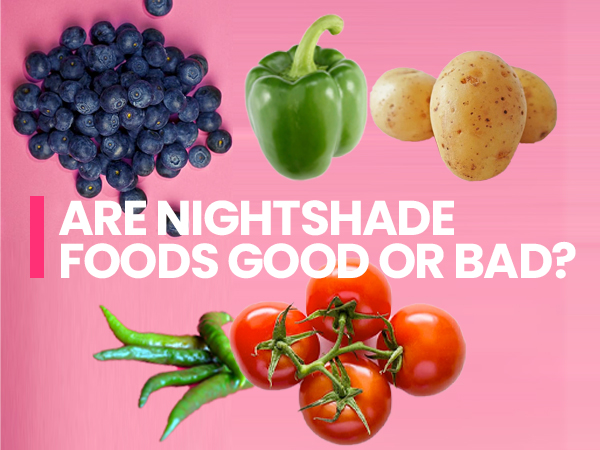Just In
- 6 hrs ago

- 7 hrs ago

- 10 hrs ago

- 14 hrs ago

Don't Miss
- Finance
 8 Tata Group Stocks To Buy That Will Pay Dividends Soon, Q4 In Focus; Are You Invested?
8 Tata Group Stocks To Buy That Will Pay Dividends Soon, Q4 In Focus; Are You Invested? - Sports
 Australia Women Cricketer Ashleigh Gardner gets engaged to partner Monica Wright
Australia Women Cricketer Ashleigh Gardner gets engaged to partner Monica Wright - Movies
 Kareena Kapoor Inspired Blouse Back Designs, Explore Top 5 Hottest Picks For This Wedding Season
Kareena Kapoor Inspired Blouse Back Designs, Explore Top 5 Hottest Picks For This Wedding Season - News
 Iran Embassy In Paris Cordoned Off Following Reports Of Suspect With Explosives
Iran Embassy In Paris Cordoned Off Following Reports Of Suspect With Explosives - Automobiles
 Suzuki Swift Hatchback Scores 4 Star Safety Rating At JNCAP – ADAS, New Engine & More
Suzuki Swift Hatchback Scores 4 Star Safety Rating At JNCAP – ADAS, New Engine & More - Education
 NLSIU Announces the Rajiv K. Luthra Foundation Grant
NLSIU Announces the Rajiv K. Luthra Foundation Grant - Technology
 Dell Introduces AI-Powered Laptops and Mobile Workstations for Enterprises in India
Dell Introduces AI-Powered Laptops and Mobile Workstations for Enterprises in India - Travel
 Journey From Delhi To Ooty: Top Transport Options And Attractions
Journey From Delhi To Ooty: Top Transport Options And Attractions
What Are Nightshade Vegetables? Are They Good Or Bad For Health?
Dietary components from plants are an essential part of human life as they provide medicinal and nutritional support to the body. Among these plant-based foods come nightshades which are known both for their benefits as well as harmful effects. [1]

Nightshades belong to the Solanaceae family with more than 2000 varieties of plants, among which only a few are considered edible. In this article, we will discuss details about nightshade vegetables to help you understand whether it is good or bad for your health.


What Are Nightshades?
Nightshades mainly include vegetables like potatoes, cayenne peppers, eggplants (brinjal), tomatoes and bell peppers. Among these, some are botanically regarded as fruits such as tomatoes while some are converted to spices like crushed red pepper or used by food manufacturing industries for the making of sauce or salsa. They are regarded as a staple food in many cultures and are widely consumed by some groups.
Some
nightshades
contain
toxins
called
lectins
which
can
cause
certain
health-related
problems.
Lectins
are
protein
types
found
mainly
in
nightshades,
legumes,
beans
and
grains.
However,
they
easily
go
when
cooked.
Most
Nutritious
Nightshades
- Bell peppers
- Potatoes
- Eggplants
- Tomatoes
- Blueberries
- Cayenne peppers
- Goji berries or wolfberries
- Jalapenos
- Red and green chillis
- Husk tomatoes or tomatillos


Benefits Of Nightshades
Nightshade foods are nutrient-rich and contain many micronutrients which are beneficial for the prevention or management of many ailments. They are also the building blocks of the Mediterranean diet. Some of the benefits of nightshades include:
1. May reduces inflammation
There's a controversy regarding the anti-inflammatory properties of nightshade veggies. Some experts say that nightshade vegetables like tomato contain vital nutrients that help reduce inflammatory symptoms such as pain, while others say that it may exaggerate the inflammation in arthritis or bowel diseases. However, if these vegetables tend to cause inflammation often, it can be because of some other underlying conditions.
2. May reduces oxidative stress
Lycopene is an antioxidant found in some of the nightshades such as tomato and chilli pepper. They help prevent oxidative stress in the body and related diseases like muscle weakness, memory loss, diabetes, cancer and many more. These veggies also contain other antioxidants like vitamin C and A which helps lower the risk of chronic diseases.

3. May helps in iron absorption
Bell peppers and cayenne peppers are great sources of vitamin C which tends to enhance the absorption of iron by the body. Vitamin C, a water-soluble vitamin absorbs nonheme iron (iron available only in plant-based sources) and helps prevent related diseases like anaemia. [2]
4. May regulate bowel movement
Nightshades like eggplants are excellent sources of dietary fibre that helps regulate bowel movement. Also, the carotenoids and antioxidants in some nightshade vegetables like tomatoes help lower inflammatory cytokines and prevent the risk of digestive cancers.
5. May lower risks of heart diseases
Nightshade vegetables are part of a Mediterranean diet which is known to reduce the risk of inflammatory diseases like heart problems. These foods contain polyphenols and antioxidants and other micronutrients. Also, lycopene in tomatoes is known to lower bad cholesterol levels and prevent the risk of stroke.


Disadvantages Of Nightshades
1. Not suggested for people with autoimmune disorders
A study says that nightshades naturally contain steroidal alkaloids, a chemical that helps them protect against pest and pathogens. The alkaloids can worsen the symptoms in autoimmune disorders like inflammatory bowel disease. They may also trigger inflammation and cause problems. However, the study needs more evidence as nightshades are also known to reduce inflammation in many cases. [3]
2. Can cause allergies
Nightshades can trigger allergic reactions or cause sensitivities to some people. The symptoms may include skin rash, shortness of breath, pale skin, coughing or anaphylaxis. This is mainly due to the inflammation caused by the consumption of these foods.
3. Can prevent the absorption of vitamin D
Some research says that nightshades contain a high amount of oxalic acid that tends to prevent the absorption of vitamin D by the body and cause bone-related diseases like osteoporosis or arthritis. However, the area needs more research.
To Conclude
Nightshades are good for people who are healthy and do not have any underlying conditions. However, if you find any allergic reactions or worsening of symptoms (in the case of autoimmune disease), it is advised to eliminate the food from the diet. But, don't forget to avoid only those nightshades to which you are allergic, and not all, as you may get deficient in certain nutrients which are packed in nightshade foods.


Common FAQs
1. What are nightshade vegetables and why are they bad?
Nightshades are vegetables and fruits which are both nutritious and somewhat toxic. They are considered bad because some micronutrients in them can cause inflammation or increase the risk of chronic diseases. However, due to the lack of evidence and several myths surrounding the food, the disadvantages cannot be claimed.
2. Why are they called nightshade vegetables?
Nightshade vegetables are named so because they grow mainly in the shady areas and often flower during the night time. Also, among the 2000 varieties of nightshades, some non-poisonous veggies and fruits get mistaken with poisonous ones and were given the name.
3. Is Sweet Potato nightshade?
No, botanically, sweet potato does not come under a family Solanaceae. So, it cannot be considered nightshade.

-
 healthTaste The Unexpected: 6 Fruits That Look & Taste Like Tomatoes
healthTaste The Unexpected: 6 Fruits That Look & Taste Like Tomatoes -
 insyncAs Tomato Acts Pricey, Hilarious Tomatoey Memes Take Over The Internet
insyncAs Tomato Acts Pricey, Hilarious Tomatoey Memes Take Over The Internet -
 insyncWith Tomato Prices Soaring High, Check Out 8 Substitutes For Fresh Tomatoes And Other Veggies
insyncWith Tomato Prices Soaring High, Check Out 8 Substitutes For Fresh Tomatoes And Other Veggies -
 healthTomato Costs Soar High: 5 Substitutes To Give Tangy Flavour To Your Recipes
healthTomato Costs Soar High: 5 Substitutes To Give Tangy Flavour To Your Recipes -
 beauty3 Ways To Use Tomato For Tightening Facial Pores: For All Skin Types
beauty3 Ways To Use Tomato For Tightening Facial Pores: For All Skin Types -
 beauty3 DIY Tomato Skincare Recipes For Acne Spots
beauty3 DIY Tomato Skincare Recipes For Acne Spots -
 nutritionTomatoes Are Really Good For Your Gut Health: Here’s Why
nutritionTomatoes Are Really Good For Your Gut Health: Here’s Why -
 skin care8 Tomato Masks For Minor Skin Conditions Like Dryness, Dullness, Acne Etc.
skin care8 Tomato Masks For Minor Skin Conditions Like Dryness, Dullness, Acne Etc. -
 skin care6 Simple Ways To Use Tomato For Healthy, Glowing Skin
skin care6 Simple Ways To Use Tomato For Healthy, Glowing Skin -
 wellnessEvidence-Based Health Benefits Of Tomato Juice: Anti-Ageing, Weight Loss, Immunity And More
wellnessEvidence-Based Health Benefits Of Tomato Juice: Anti-Ageing, Weight Loss, Immunity And More -
 wellnessBest Superfoods For Men And Women Over 40
wellnessBest Superfoods For Men And Women Over 40 -
 nutritionEdible And Nutritious Plants You Can Grow At Home
nutritionEdible And Nutritious Plants You Can Grow At Home


 Click it and Unblock the Notifications
Click it and Unblock the Notifications



